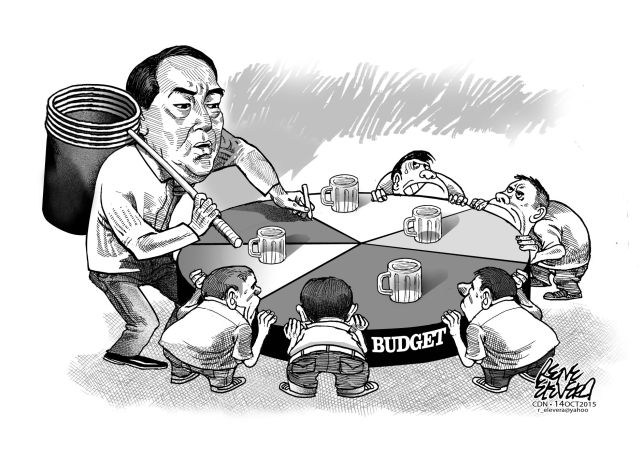
Regardless of the charges he faces, Abad’s explanation for the rationale behind the bottom-up budgeting is essentially true, at least in principle. The approach calls for citizen and sectoral involvement in identifying priority concerns for constituents. From theere, the concerns are presented to local and national government leaders for action and approval.
There are still problems, of course, such as when local officials interfere in the budget process on the barangay and community level.
Let’s take the case of Cebu City whose mayor and council have a badly strained relationship.
For the past five and a half years, Cebu City Mayor Michael Rama’s style in drawing up the budget was to let his department heads come up a wish list of projects and programs with “sky is the limit” and then lay it on the council, which is dominated by political opposition, for review.
Any negative assessment and opposition he meets on the budget is then used as political ammunition against the council. The council is placed on the defensive and has to work overtime to explain itself to the public.
In these kinds of politically charged budget disputes, it may be a good idea for national line agencies to get more involved, to help reconcile matters.
We refer to the Departments of Interior and Local Government (DILG), Budget and Management and Social Welfare and Industry, among others.
But then again, their presence may be resented by mayors and governors as unnecessary and dangerous interference by Imperial Manila, and they will argue that such involvement will violate the Local Government Code.
This is where citizen stakeholders can come in.
They have to make their individual and collective voices heard above the din of high political drama.
They cannot afford to let political players dominate the conversation.
The essential relationship is one of public servants and the constituents they serve, not one of patrons and beneficiaries.
Abad said about P6.7 billion was allocated for the BUB program in the Visayas, of which we expect Cebu to receive a substantial share.
He wasn’t that clear about how to navigate the bureaucracy when it comes to seeking funding, so stakeholders need to read up on the DBM website. The vocabulary of government alone is enough to leave you dazed.
As local governments in Cebu start budget deliberations this month, their constituents can only hope they have the grassroots in mind and bothered to get input from ordinary folk.
Disclaimer: The comments uploaded on this site do not necessarily represent or reflect the views of management and owner of Cebudailynews. We reserve the right to exclude comments that we deem to be inconsistent with our editorial standards.
